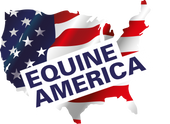Why Should I Feed Supplements, and How Do I Know Which Ones To Feed?

The nutritional requirements of horses have been the subject of a lot of research in recent years, so we now understand better than ever how to meet the needs of horses, keeping them happy and healthy! These needs can change based on work and competition schedules, age, travelling and various health conditions. When these changes occur, horses may benefit from supplementation of key micronutrients or other nutritional ingredients. This also allows the horse owner to change diets based on the individual horse, with a specifically tailored programme. Supplements can be targeted or broad spectrum - and we will explore all the options below!
Broad Spectrum Supplements
Broad-spectrum supplements help to meet the everyday, general requirements of horses. Forage should form the basis of an equine diet - with vitamins, minerals, proteins and additional energy fed on top of this. Particularly for poor doers, this additional energy for work, growth or general maintenance is key. A lot of feeds are fortified with micronutrients, but sometimes these levels can be lower than recommended intakes. Hay and haylage can be low in important vitamins, and the preserving process can result in even more loss of nutrients. This means that selenium, copper, and zinc levels can be low and therefore inadequate for meeting requirements. For horses on no or low concentrate feeds, broad spectrum supplements can be the best option to ensure that the horse is getting all of the necessary micronutrients. Broad-spectrum supplements containing pre and probiotics can also be used for horses and ponies moving yard, recovering from illness of changing feed.
Targeted Supplements
Targeted supplements are designed to support specific systems or areas in a horse, with specific nutritional approaches based on the needs of the horse. Most commonly, these are used to manage joint health/mobility, respiratory issues and unpredictable or temperamental behaviours.
Wear and Tear to joints occurs through ageing, microtrauma during exercise and injury. This can affect performance, mobility, and ability to work. The key components to support and protect joint health are collagen, hyaluronic acid (HA), chondroitin, glucosamine, glycine and manganese. Supplementing these can help horses and ponies work until they are older, or feel more comfortable once retired. A lot of joint supplements will also contain MSM, turmeric, Boswellia, yucca and other plant-based ingredients. These are thought to have antioxidant properties and contribute to the horse's own anti-inflammatory processes, promoting joint and muscle comfort.
Whether horses are stabled or living out, they are subjected to respiratory challenges from dust and fungal spores or pollen respectively. This affects respiratory function, causing coughing, inflammation, and issues with breathing. Performance and general comfort can be severely impacted by respiratory challenges. Supplements for the respiratory system are targeted for opening the airways, and mostly use plant compounds called phytochemicals. These are thought to have antioxidant properties as well as supporting immunity and bronchodilation. Nettle, menthol, eucalyptus, echinacea and astragalus are some of the ingredients to look out for. Respiratory supplements can be bought in powder form for daily feeds, or liquids which can be syringed before competitions or other activities that are challenging to the respiratory system.
Horses are fright or flight animals, not fight or flight, and this fright response can cause them to overreact to certain situations, particularly if they are challenging or new. When key nutrients are depleted, this can be even worse, particularly if it affects neuromuscular function. Magnesium is one of the primary ions involved with neuromuscular function, so a lack of this can result in a tense, over excitable horse. Calcium is also involved closely with this, as are thiamine and vitamin B1. Chamomile is also a calming substance.
Summary
- Check that manufacturers are approved and certified by organisations such as UFAS and BETA NOPS. This ensures that the supplement meets quality standards for safety and contaminants.
- Check that environmental policies for the manufacturers are good, and choose recyclable packaging where possible.
- Look for individual listed ingredients, rather than vague 'botanicals' or 'plant extracts'.
- Supplements can help in many circumstances, but are not miracle cures - horses are individuals and have different needs, what works for one horse may not work for another.

